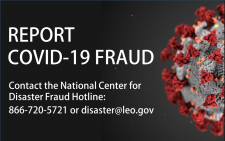|
Help |
Site Map
|
Health and Science
AS OF APRIL 4, 2022
Background
Changes to the makeup of the U.S. Supreme Court in 2018 raise the possibility that Roe v. Wade could be severely undermined — or even overturned — essentially leaving the legality of abortion to individual states. A reversal of Roe could establish a legal path for states’ pre-1973 abortion bans, as well as currently unenforced post-1973 bans, to take effect.
Many state lawmakers continue to consider and enact abortion bans that fly in the face of constitutional standards and Roe’s precedent in anticipation of an eventual lawsuit on such a ban coming before a Supreme Court hostile to abortion rights.
Some bans prohibit abortion under all or nearly all circumstances, a tactic widely viewed as an attempt to provoke a legal challenge to Roe. Several of this type of ban that were passed by states have been blocked by court orders and would require further court action to be enforced.
Other bans enacted after Roe are designed to be “triggered” and take effect automatically or by swift state action if Roe is overturned. Several states even have laws declaring the state’s intent to ban abortion to whatever extent is permitted by the U.S. Constitution, making their desire to halt abortion access in the state clear. A few states have amended their constitution to declare that it does not contain any protection for abortion rights or allow public funds to be used for abortion.
Meanwhile, policymakers in some states have approved laws to protect abortion rights without relying on the Roe decision. Most of these policies prohibit the state from interfering with the right to obtain an abortion before viability or when necessary to protect the life or health of the pregnant person.
Visit our state legislation tracker for policy activity on all sexual and reproductive health topics.
Highlights
- 23 states have laws that could be used to restrict the legal status of abortion.
- 9 states retain their unenforced, pre-Roe abortion bans.
- 13 states have post-Roe laws to ban all or nearly all abortions that would be triggered if Roe were overturned.
- 9 states have unconstitutional post-Roe restrictions that are currently blocked by courts but could be brought back into effect with a court order in Roe’s absence.
- 7 states have laws that express the intent to restrict the right to legal abortion to the maximum extent permitted by the U.S. Supreme Court in the absence of Roe.
- 4 states have passed a constitutional amendment explicitly declaring that their constitution does not secure or protect the right to abortion or allow use of public funds for abortion.
- 16 states and the District of Columbia have laws that protect the right to abortion.
- 4 states and the District of Columbia have codified the right to abortion throughout pregnancy without state interference.
- 12 states explicitly permit abortion prior to viability or when necessary to protect the life or health of the pregnant person.
Printer-friendly version
TOPIC
GEOGRAPHY
- Northern America: United States
- Alabama, Alaska, Arizona, Arkansas, California, Colorado, Connecticut, Delaware, District of Columbia, Florida, Georgia, Hawaii, Idaho, Illinois, Indiana, Iowa, Kansas, Kentucky, Louisiana, Maine, Maryland, Massachusetts, Michigan, Minnesota, Mississippi, Missouri, Montana, Nebraska, Nevada, New Hampshire, New Jersey, New Mexico, New York, North Carolina, North Dakota, Ohio, Oklahoma, Oregon, Pennsylvania, Rhode Island, South Carolina, South Dakota, Tennessee, Texas, Utah, Vermont, Virginia, Washington, West Virginia, Wisconsin, Wyoming
Related Content
Guttmacher Policy Review
*State Policy Resources: The Guttmacher Institute monitors and analyzes state policy developments—including legislative, judicial and executive actions — on a broad range of issues related to sexual and reproductive health and rights. These resources, on such issues as access to and availability of abortion, contraceptive services and sex education, are updated regularly to provide a comprehensive picture of the state policy landscape.
Announcing its intent to introduce the Canada Emergency Commercial Rent Assistance (CECRA) for small businesses. The program will seek to provide loans, including forgivable loans, to commercial property owners who in turn will lower or forgo the rent of small businesses for the months of April (retroactive), May, and June. Implementation of the program will require a partnership between the federal government and provincial and territorial governments, which are responsible for property owner-tenant relationships. We are working with the provinces and territories to increase rent support for businesses that are most impacted by the pandemic and we will have more details to share soon. “Canadians have been there for each other. When we get into difficult situations, we lean on each other,” he said. “We’re in one of the best countries in the world and we’re going to make sure no one goes through this alone.” more »
By Julia Sneden ... Teaching is a profession that keeps you humble because it's perfectly possible to learn as much from your students as they learn from you (even if they are only five years old). But it's life itself that is the great teacher, for old dogs as well as for the young. Just ask anyone who has had to unravel the intricacies of Medicare or retirement plans: if that's not learning new tricks, I don't know what is. For that matter, ask anyone who has had to learn how to be a good mother-in-law (dicey, but worth it); a grandmother (different from parenting, but also thrilling); or the spouse of a recently retired male who wants only to sit in the house and sulk (not a fun learn, I'm told). Or ask a single person who has had to take on the financial, physical, and emotional planning for retirement years, solo. You learn to cope with these challenging new tricks, the joyous as well as the depressing, because life has handed them to you and refusal isn't an option. more »
"Challah for Hunger's mission is to fight hunger globally and locally. There are chapters all across the world who bake bread every week. Each chapter sells the bread and donates half of their proceeds to a globally based organization called Mazon, a Jewish response to hunger and a local organization of their choice. When this global pandemic started ramping up I was happy to donate money to causes and stay at home but I truly wanted to do something more. These health care workers need to have a moment of acknowledgment and being honored; what better way to do this than through a delicious and filling snack made with love?" more »
From the US Department of Justice: Be aware that criminals are attempting to exploit COVID-19 worldwide through a variety of scams. There have been reports of: • Individuals and businesses selling fake cures for COVID-19 online and engaging in other forms of fraud. • Phishing emails from entities posing as the World Health Organization or the Centers for Disease Control and Prevention. • Malicious websites and apps that appear to share virus-related information to gain and lock access to your devices until payment is received. • Seeking donations fraudulently for illegitimate or non-existent charitable organizations. If you think you are a victim of a scam or attempted fraud involving COVID-19, you can report it without leaving your home though a number of platforms. more »
|
|










